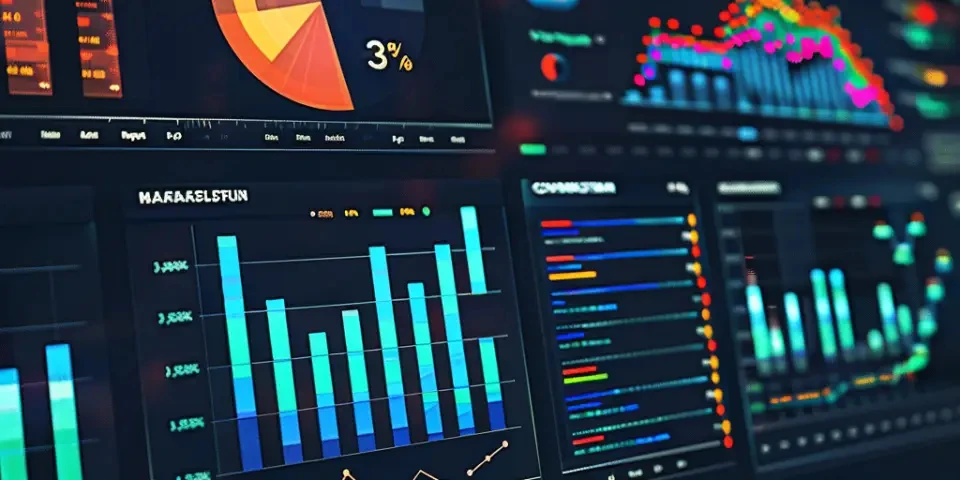Revolutionizing Entertainment The Future of AI-Generated Image Filters
Entertainment has always been an ever-evolving industry, constantly embracing new technologies to enhance user experiences. One of the most promising advancements in recent years is the integration of Artificial Intelligence (AI) in image filters. These AI-generated filters are revolutionizing the way we perceive and interact with visual content, unlocking a plethora of creative possibilities. In this article, we will explore the future of AI-generated image filters from various perspectives.
1. Unleashing Creativity
AI-generated image filters provide artists, designers, and content creators with a powerful tool to unleash their creativity. By allowing the manipulation of images in ways that were previously time-consuming or even impossible, these filters enable artists to explore new artistic directions and push boundaries.

For example, AI-powered filters can transform a regular photograph into a stunning painting reminiscent of the styles of Picasso or Van Gogh. The ability to mimic various artistic styles helps artists experiment and express their visions, offering a new level of artistic freedom and expression.
2. Personalization of Visual Content
With the rise of social media and personalized experiences, AI-generated image filters are becoming increasingly popular. These filters allow users to apply unique effects to their photos, creating a personalized feed that reflects their individuality.
From face filters that add whimsical elements to images to location-based filters that celebrate local landmarks, AI-generated filters enable users to personalize their visual content effortlessly. This personalization not only enhances user engagement but also creates emotional connections between content creators and their audience.
3. Real-Time Filtering
Traditionally, applying complex image filters required substantial computational resources, making real-time filtering a challenge. However, AI-generated image filters leverage the power of neural networks to process and apply filters in real-time, even on mobile devices.
This advancement opens up opportunities for live video streaming platforms or video calling applications to offer interactive and dynamic image filters. Imagine engaging in a video call with friends while wearing virtual masks or exploring exotic locations in augmented reality, all within a real-time video stream.
4. Enhanced User Experience
The integration of AI-generated image filters directly enhances the user experience in various entertainment sectors. For instance, online gaming platforms can utilize these filters to provide players with customizable character appearances, allowing them to create unique avatars that reflect their personalities.
Additionally, AI-generated image filters can be used in virtual reality (VR) and augmented reality (AR) applications to enhance immersion. By simulating realistic environments or overlaying virtual objects onto the real world, these filters take user experiences to a new level, blurring the line between reality and virtual worlds.
5. AI Models for Hassle-Free Editing
Editing images can be a time-consuming and tedious task, often requiring intricate knowledge of professional editing software. AI-generated image filters simplify this process by offering pre-trained models that automatically enhance images, handle color correction, or remove unwanted objects.
These AI models can be integrated into image editing software or even mobile apps, allowing users to achieve professional-looking results with ease. By saving time and effort, these filters make image editing accessible to a wider audience and empower amateur photographers to create stunning visuals.
6. Minimizing Bias in Image Filters
One of the challenges in image filters is the potential for perpetuating bias or stereotypes. AI-generated filters can inadvertently reinforce societal biases if not properly trained or regulated. However, industry leaders and researchers are actively working towards minimizing such bias.
By diversifying training datasets and using algorithmic fairness methodologies, AI-generated image filters can strive to be more inclusive and representative. This ensures that these filters do not inadvertently discriminate against certain demographics or perpetuate harmful stereotypes.
7. Integration with Social Impact Campaigns
AI-generated image filters have the potential to go beyond casual entertainment and be leveraged for social impact campaigns. Non-profit organizations can utilize these filters to raise awareness about important causes and engage with their audience in innovative ways.
For example, a filter that simulates the effects of pollution on cityscapes can be used to emphasize the urgency of environmental conservation. These filters have the power to evoke empathy and spark conversations, making them valuable tools for advocacy and raising public consciousness.
8. Collaborative Filters for Shared Experiences
AI-generated image filters can also facilitate shared experiences and collaboration. By allowing multiple users to interact with filters in real-time, these filters foster a sense of community and enable collaborative creativity.
Applications and platforms like photo booths at events or multiplayer games can leverage collaborative filters to create memorable experiences. Users can simultaneously engage with filters, share their creations, and enjoy a sense of togetherness, even when physically apart.
FAQs:
1. Can AI-generated image filters be used for commercial purposes?
Yes, AI-generated image filters can be used for commercial purposes, such as brand promotions, advertising campaigns, or product visualization. These filters provide an engaging and visually appealing way to enhance brand presence and connect with consumers.
2. Are AI-generated image filters only limited to photographs?
No, AI-generated image filters can be applied to various types of visual content, including photographs, videos, and even real-time streaming. Their versatility allows for a wide range of creative applications in different entertainment domains.
3. Can AI-generated image filters be used on mobile devices?
Yes, AI-generated image filters can be designed to work efficiently on mobile devices, leveraging the processing power of modern smartphone chips. This enables users to apply filters in real-time and on the go, enhancing their mobile photography and social media experiences.
References:
1. Smith, K. (2020) AI-generated Art Set to Explode in 2020. Forbes.
2. Kim, J., et al. (2019) Deep Photo Style Transfer. ACM Transactions on Graphics (TOG).
3. Manovich, L. (2019) AI Artist: How Artificial Intelligence Creates New Creative Worlds. Journal of Broadcasting & Electronic Media.
Explore your companion in WeMate